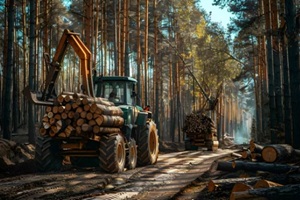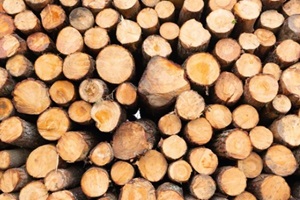
Forestry work is, by nature, dangerous; in fact, it is one of the top three industries with the greatest number of fatalities each year. Most people assume that this risk comes primarily from injuries caused by equipment. However, fire is also a significant threat to both workers and their machinery.
Forestry insurance should be customized to address fire risks for businesses operating in susceptible areas. Otherwise, a logging company could quickly find itself insolvent after an unexpected act of nature. Logging company owners and operators in areas prone to wildfires must safeguard their business and assets against fire-related risks.
Insurance coverage can offer not only financial protection against losses attributed to fire but also peace of mind for business owners. Companies that incorporate insurance policies for combating fire damage can see improved business resilience, as their operations need not grind to a halt when fires strike. Here are some essential insurance coverages to keep in mind.
Comprehending Fire Risks
Logging operations face the risk of wildfires from both manmade and natural causes. Some of the most frequent igniting incidents leading to wildfires include:
- Tracts of land thinned too severely by logging, allowing flammable weeds to populate
- Lightning strikes
- Campfires
- Droughts
- Machinery, such as the ignition of an oil leak from a truck
- Faulty utility equipment (such as power lines)
- Cigarettes discarded improperly
No matter what causes a fire, logging companies can be at risk if they are near the burn. The risk to human life and equipment is even greater if the logging company is responsible for ignition, as they now occupy ground zero of the blaze. Insurance coverage is essential to combat the often significant expenses associated with loss from wildfires.
Primary Insurance Coverages for Fire-Prone Areas
While each logging company’s operations are exclusive, some insurance policies are invaluable in most circumstances. These include:
Commercial Property Insurance

Loss of physical assets remains a significant risk during wildfires. Commercial property insurance can secure personal belongings, facilities, and some equipment against loss, offering replacement costs equal to either the current value of the lost items or the value of replacing the property with an equivalent.
Business Interruption Insurance
When a wildfire is raging, logging companies can no longer perform their duties. However, they are still beholden to delivery timetables and other contractual obligations, which can result in significant financial losses when business is disrupted. Business interruption insurance can help to cover equipment rental fees and other temporary losses associated with the wildfire while operations are on hold.
Workers’ Compensation Insurance
The workers staffing a logging operation are at particular risk during wildfires. From smoke inhalation to injury from falling trees weakened by the flames, logging workers are at approximately 23 times greater risk than U.S. employees in other industries. Suppose a logger is injured or even killed during a wildfire.
In that case, workers’ compensation insurance can pay their families for funeral costs, medical expenses, rehabilitation bills, and time off work. Logging companies are typically required to carry a minimum level of workers’ compensation insurance, given the inherent risk present in the industry.
Additional Coverages to Consider
While the aforementioned policies are a smart choice for any logging company at risk of facing a wildfire, some businesses can benefit from additional coverage depending on the type of work they do. These protections can include:
Environmental Liability Insurance
If a logging company starts a wildfire or if its operations pollute the area through accidents such as oil leaks from machinery, the logging business is typically responsible for the cost of remediating the natural environment. This can represent a substantial cost without environmental liability insurance to protect the business from actual costs, legal fees, or fines.

Umbrella Insurance
Depending on the scope of a logging business, basic coverages from policies such as equipment insurance, liability insurance, and workers’ compensation may not be sufficient. Logging companies that require additional coverage should consider umbrella insurance, which can expand the maximum potential payout for other insurance policies, providing supplemental protection for those who need it.
Secure Your Logging Company With Burton & Company
Logging companies must prepare for wildfires as a “when” event, not an “if.” The natural world remains unpredictable, and securing proper insurance coverage is one of the best investments you can make for the long-term success of your logging business.
The experts at Burton & Company have extensive experience in forestry and customized insurance solutions to address the risks you face in fire-prone areas. Contact Burton & Company for a personalized consultation so you can approach your logging contract with confidence, regardless of what surprises the natural world has in store.

